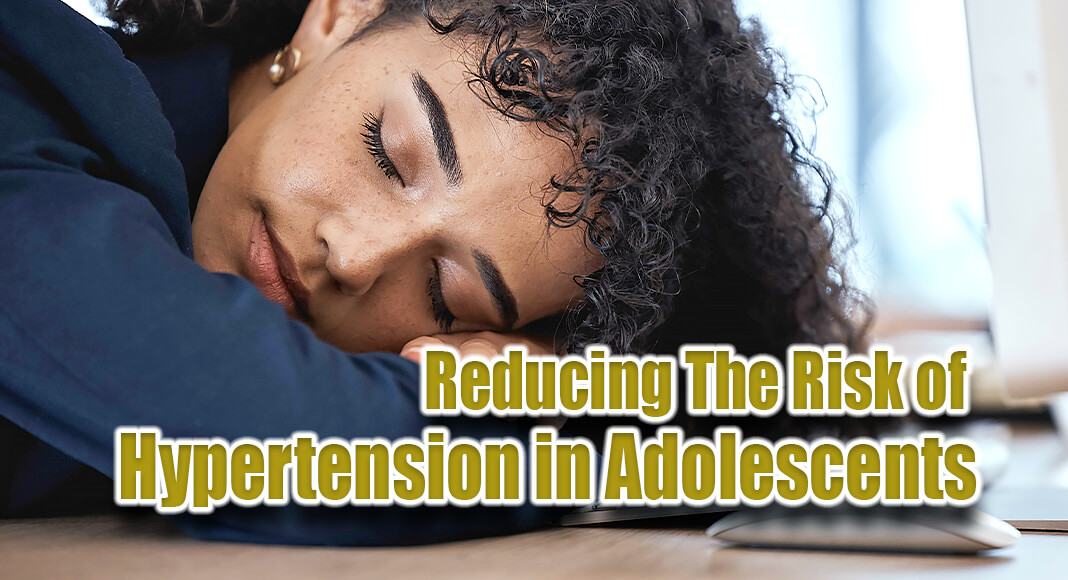
Mega Doctor News
By University of Texas Health Science Center at Houston
Newswise – Adolescents who meet the recommended guidelines of nine to 11 hours of sleep per day were shown to have a significantly lower risk of hypertension, according to a new study from UTHealth Houston.
Recently published in the Journal of the American Heart Association, the research revealed that adolescents had a 37% lower risk of developing incidents of high blood pressure by meeting healthy sleep patterns, and underscoring the importance of adequate sleep behavior. The research further explored the impact of environmental factors potentially impacting sleep.
“Disrupted sleep can lead to changes in the body’s stress response, including elevated levels of stress hormones like cortisol, which in turn can increase blood pressure,” said first author Augusto César Ferreira De Moraes, PhD, assistant professor in the Department of Epidemiology at UTHealth Houston School of Public Health.
Utilizing the Adolescent Brain Cognitive Development study, which tracks adolescents’ biological and behavioral development, De Moraes and his team analyzed data from 3,320 adolescents across the U.S. to investigate incidents of high blood pressure during nighttime sleep cycles. Scientists identified a rise in hypertension incidents over two data periods, 2018-2020 and 2020-2022, showing an increase from 1.7% to 2.9%. The data included blood pressure readings and Fitbit assessments, which measured total sleep time and REM sleep duration at night. The study’s design analyzed covariates such as Fitbit-tracked sleep, blood pressure, and neighborhood noise by residential geocodes, allowing for a thorough examination of environmental noise exposure for each participant.
Scientists investigated the impact of neighborhood/community noise but did not find a significant association with the incidence of hypertension. Environmental factors, such as neighborhood noise, point to the need for longer-term studies to investigate the relationship between sleep health and hypertension, particularly in relation to socioeconomic status, stress levels, and genetic predispositions.
The study emphasizes the importance of improved sleep behaviors and meeting recommendations. “Consistent sleep schedules, minimizing screen time before bed, and creating a calm, quiet sleep environment can all contribute to better sleep quality,”Martin Ma, MPH, second author of the study and recent graduate of the school. “Although environmental noise didn’t directly affect hypertension in this study, maintaining a quiet and restful sleep environment is still important for overall well-being.”
Additional authors included Marcus Vinicius Nascimento-Ferreira, PhD, with the Universidade Federal do Tocantins; and School of Public Health faculty Ethan Hunt, PhD, assistant professor in Health Promotion and Behavioral Sciences; and Deanna Hoelscher, PhD, RDN, LD, regional dean in Austin and professor in Health Promotion and Behavioral Sciences.









